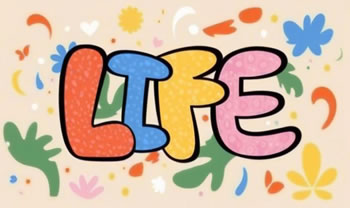
Between alarms I would rush to the company office to read Captain Gray's copy of the Sunday New York Times. It was late in the afternoon when I finally got to the Book Review section. As I read it, my blood began to boil. An article blatantly stated what I took to be a calumny -- that William Butler Yeats, the Nobel Prize-winning light of the Irish Literary Renaissance, had transcended his Irishness and was forever to be known as a universal poet.
There were few things I was more proud of than my Irish heritage, and ever since I first picked up a book of his poems from a barracks shelf when I was in the military, Yeats had been my favorite Irish writer, followed by Sean O'Casey and James Joyce.
My ancestors were Irish farmers, fishermen and blue-collar workers, but as far as I can tell, they all had a feeling for literature. It was passed on to my own mother, a telephone operator, who hardly ever sat down without a book in her hands. And at that moment my own fingernails might have been soiled with the soot of the day's fires, but I felt as prepared as any Trinity don to stand up in the court of public opinion and protest. Not only that Yeats had lived his life and written his poetry through the very essence of his Irish sensibility, but that it was offensive to think Irishness -- no matter if it was psychological, social or literary -- was something to be transcended.
My stomach was churning, and I determined not to let an idle minute pass. "Hey, Captain Gray. Could I use your typewriter?" I asked.
The typewriter was so old that I had to use just one finger to type, my strongest one, even though I could type with all ten. I grabbed the first piece of clean paper I could find -- one that had the logo of the Fire Department of the City of New York across the top -- and, hoping there would be a break in the alarms for 20 minutes or so, wrote out a four-paragraph letter of indignation to the editor of the Sunday Book Review.
Throughout his poetry, I postulated, Yeats yearned for a messiah to lead Ireland out from under the bondage of English rule, and his view of the world and the people in it was fundamentally Irish.
Just as I addressed the envelope, the final alarm of my tour came in, and as I slid down the long brass pole, I felt unexpectedly calm, as if a GREat rock had been purged from the bottom of my stomach.
I don't know why I felt it my obligation to safeguard the reputation of the world's GREatest poet, at least next to Homer and Shakespeare, or to inscribe an apologia for Irish writing. I just knew that I had to write that letter, in the same way a priest has to pray, or a musician has to play an instrument.
Until that point in my life I had not written much of value -- a few poems and short stories, the beginning of a coming-of-age novel. I knew that my writing was anything but refined. Like a beginning artist who loves to draw, I understood that the more one draws, or writes, or does anything, the better the end result will be, and so I wrote often to better control my writing skills, to master them. I sent some material to various magazines and reviews but found no one willing to publish me.
It was a special and unexpected delight, then, when I learned something I'd written would finally see print. Ironically it wasn't one of my poems or short stories -- it was my letter to the Times. I suppose the editor decided to publish it because he was first attracted by the official nature of my stationery (was his staff taking smoke breaks out on the fire escape?), and then by the incongruity of a ghetto firefighter's using words like messianism, for in the lines below my letter it was announced that I was a New York City firefighter. I'd like to think, though, that the editor silently aGREed with my thesis.
I remember receiving through the fire department's address about 20 sympathetic and congratulatory letters from professors around the country. These letters made me feel like I was not only a published writer but an opinion maker. It was as if I was suddenly thrust into being someone whose views mattered.
I also received a letter from True magazine and one from The New Yorker, asking for an interview. It was the latter that proved momentous, for when an article titled "Fireman Smith" appeared in that magazine, I received a telephone call from the editor of a large publishing firm who asked if I might be interested in writing a book about my life.
I had little confidence in my ability to write a whole book, though I did intuit that my work as a firefighter was a worthy subject. And so I wrote Report From Engine Co. 82 in six months, and it went on to sell two million copies and to be translated into 12 languages. In the years that followed, I wrote three more best-sellers, and last year published a memoir, A Song for Mary: An Irish-American Memory.
Being a writer had been far from my expectations; being a best-selling author was almost unfathomable. How had it happened? I often found myself thinking about it, marveling at it, and my thoughts always came back to that letter to the New York Times.
For me, the clearest explanation is that I had found the subject I was searching for, one I felt so strongly about that the writing was a natural consequence of the passion I felt. I was to feel this same kind of passion when I began writing about firefighters and, later, when writing about my mother. These are subjects that, to me, represent the GREat values of human life -- decency, honesty and fairness -- subjects that burn within me as I write.
Over the years, all five of my children have come to me periodically with one dilemma or another. Should I study English or art? Should I go out for soccer or basketball? Should I take a job with this company or that one?
My answer is always the same, yet they still ask, for reassurance is a good and helpful thing. Think about what you're feeling deep down in the pit of your stomach, I tell them, and measure the heat of the fire there, for that is the passion that will flow through your heart. Your education and your experience will guide you toward making a right decision, but your passion will enable you to make a difference in whatever you do.
That's what I learned the day I stood up for Ireland's GREatest poet.
编辑:Liuxuepaper.Com
作文地带知识拓展:
Life 英 [laɪf] 美 [laɪf]】基本解释
n. 生活,生计;生命,性命;一生,寿命;人生,尘世
life 变化形式 复数: lives
life 生命 life 's work 毕身成就
来自古英语life,存在,生命,来自PIE*leip,停留,持续,词源同live,leave.比较world. 比喻用法。
Life释义:
the period between birth and death, or the experience or state of being alive
寿命;生命;一生,人生;生活;性命
Life's too short to worry about money!
人生短暂,何必为金钱而烦恼!
for the whole of a person's life:
I believe marriage is for life.
我相信婚姻是一辈子的事情。
to be willing to die in order to defend or support someone or something:
They were ready to give their lives for their country.
他们已做好了为国捐躯的准备。
a way of living or a particular part of someone's life
生活方式;生活(的某一部分)
her family/private life
她的家庭/个人
my working life
我的职业生涯
everything that is alive
活物,生物
human/marine/plant life
人类/海洋生物/植物
to completely change how or where you live:
She decided to start a new life in Australia.
她决定在澳大利亚开始新的生活。
the period for which a machine or organization lasts
寿命;存在周期;有效期
The newer batteries have a much longer life.
新一代电池的寿命要长得多。
the quality that makes people, animals, and plants different from objects, substances, and things that are dead
生命力,生气
figurative I looked through the window but I couldn't see any signs of life (= people moving).
我透过窗子向外望去,却看不到有任何人类活动的迹象。
the quality of having a lot of energy, interest, or excitement
活力,热情
She's so full of life.
她充满了活力。









文档为doc格式
推荐阅读:



